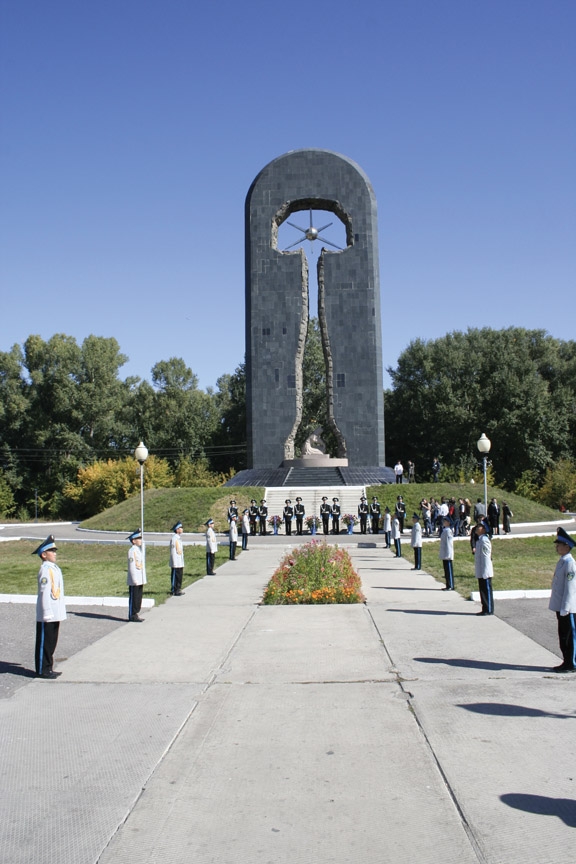
Kazakhstan and Canada: Bilateral Ties Flourish in Astana
Milions of dollars in Canadian exports will soon be flowing to Kazakhstan, improving the lives of Canadian farmers while strengthening ties between the two countries.
Canada’s Minister of Agriculture and Agri-food, Gerry Ritz, oversaw a total of $11 million of contracts signed for the livestock industry on a recent trip to Astana, Kazakhstan, dedicated towards Canada building stronger trade relations with Kazakhstan and Russia. The roots of this significant association are not new. As Kazakhstan’s Ambassador to Canada Konstantin Zhigalov outlined, the ever-growing relationship between Canada and Kazakhstan began in the late 1980s.
Ambassador Zhigalov explained: “Saskatchewan was the first province in Canada to establish relations with Kazakhstan back in 1989, when our country was still part of the Soviet Union. [The Memorandum of Understanding] on Cooperation between the Province of Saskatchewan and Kazakhstan was signed that year.” Two decades later, Kazakhstan is Canada’s number one trading partner among the Commonwealth of Independent States countries, as well as Eastern and Central European states. Trading occurs in such industries as agriculture, oil & gas, mining & metals, telecom and transportation services, according to Export Development Canada.
With the growing relationship, Kazakhstan is consistently improving its economic standing in the world. The Customs Union with Russia will ease the flow of goods between the two countries, while its upcoming membership in the World Trade Organization will enhance important international standards of trade in the state’s growing economy.
It is for these reasons that Canada continues to invest in Kazakhstan’s promising future. Whether it’s at foreign conferences or at meetings in either country, contact is consistently being maintained between the two countries.
While previous meetings have focused on everything from industry to foreign affairs, one of the most important relationships built in recent years centres around agriculture.
In 2012 alone, Canada exported $21.6 million of agri-food to Kazakhstan, with $7.6 million of that being purebred cattle alone.
After signing a Memorandum of Understanding, the Ministers of Agriculture from both states committed their intentions to increase cooperation on animal and plant production and the building of knowledge and technology in the field of agriculture.
It was the spirit of this Memorandum that reunited the ministers in Astana in May of this year.
With a delegation of leaders from the Canadian agricultural industry, Ritz managed to secure a $3-million deal for Canadian company Xports International to export purebred cattle to Kazakhstan.
As Ambassador Zhigalov explains, this productive trade relationship is set to only grow in future years.
“Not limiting ourselves to primary agriculture products, we are also interested in using machinery and equipment supplied by the Canadian companies to Kazakhstan,” Ambassador Zhigalov revealed. “The example of successful activity in this area is the work of a number of companies from Manitoba, Saskatchewan and Alberta.”
The new Customs Union between Kazakhstan, Russia and Belarus was also discussed at the meeting. Ritz brought up the negotiation of export trade certificates under the Union – further work will be done to ensure that both countries develop rules they’re pleased with. Kazakhstan also hopes to further build on the Union by opening doors in other industries for Canadian companies.
“Given the implementation of our country’s Industrial Development Program and the single market of the Customs Union of Kazakhstan, Russia and Belarus with a total population of 170 million, we think there are opportunities for Canadian companies to produce goods, such as agriculture equipment, in Kazakhstan, instead of exporting and transporting them to a great distance,” Ambassador Zhigalov explained.
There were also some issues brought up at the meetings. While the mission was a success, Kazakhstan’s ban on ractopamine came up as a point of contention. The feed additive is recognized as being safe and is frequently used in Canadian livestock. However, the Russian and Kazakh government will send their own government veterinarians to Canada to review the use of the additive in Canadian livestock.
In response to this, Minister Ritz highlighted the importance of building trade rules on the basis of hard science – something that will surely form the foundation of future conversations to build solutions with the Kazakh government.
Given the overall positive tone of the most recent meeting in Astana, the partnership between the two countries is set to further improve in the future.
“I think we will see more visits of delegations from Canadian provinces to Kazakhstan and from Kazakhstan’s regions to Alberta, Saskatchewan, Manitoba and other provinces that will help us to find new areas for mutually beneficial cooperation,” Ambassador Zhigalov said.
With the Memorandum of Undstanding in place, millions of dollars in investments made and promises for future cooperation, the two-decade-old relationship between Canada and Kazakhstan continues to flourish.








